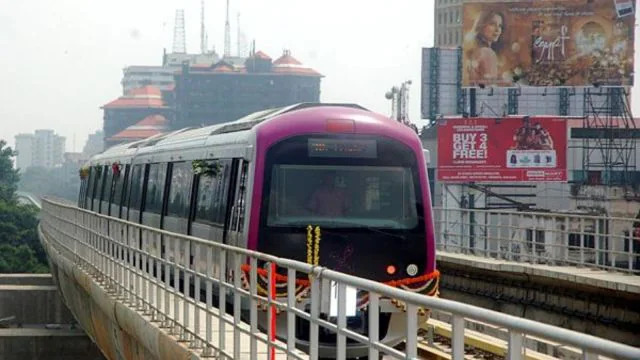In the rapidly expanding city of Bengaluru, infrastructure development often intersects with the interests of established institutions and communities. A recent controversy has emerged between PES University, one of the city’s premier educational institutions, and the Bangalore Metro Rail Corporation Limited (BMRCL) over the proposed construction of a new Metro station near the university’s campus. The dispute highlights the complexities of urban development in a bustling metropolis like Bengaluru, where progress and preservation must be carefully balanced.
The Core of the Controversy
PES University, located in South Bengaluru, has voiced significant concerns about the BMRCL’s plans to build a Metro station adjacent to its campus. The university administration argues that the proposed location could disrupt the academic environment, compromise the safety of students, and infringe on the campus’s space and aesthetics.
The primary concerns raised by PES University include:
- Noise Pollution: The proximity of the Metro station to classrooms and academic buildings could lead to increased noise levels, disrupting lectures, exams, and the overall learning atmosphere.
- Safety Risks: The influx of commuters near the campus could pose safety concerns for students, especially during peak hours when the area could become congested.
- Campus Aesthetics and Space: The university fears that the construction and eventual operation of the Metro station could encroach on campus grounds, affecting its layout and green spaces, which are vital for maintaining a conducive educational environment.
These concerns have prompted the university to seek a reconsideration of the station’s location, urging the BMRCL to find an alternative site that would not interfere with the campus’s functioning.
BMRCL’s Response: Design Modifications as a Solution
In response to the concerns raised by PES University, BMRCL has acknowledged the issues but has also emphasized the importance of the proposed Metro station for the city’s broader transportation network. The Metro station is part of the ongoing expansion of Bengaluru’s Metro system, which aims to alleviate the city’s notorious traffic congestion and provide efficient public transportation options to its residents.
However, BMRCL officials have made it clear that while relocating the station is not feasible due to logistical and planning constraints, they are open to modifying the station’s design to address the university’s concerns. The proposed design changes include:
- Sound Barriers: BMRCL has suggested the installation of advanced sound barriers to minimize noise pollution emanating from the station and train operations, thus reducing the impact on the academic environment.
- Enhanced Safety Measures: To ensure the safety of students and staff, BMRCL plans to implement robust safety protocols, including controlled access points and increased security presence in and around the station.
- Aesthetic Considerations: The design modifications could include landscaping and architectural elements that would blend the station with the campus’s existing aesthetic, minimizing visual disruption and preserving the university’s atmosphere.
While these proposed changes may alleviate some of the university’s concerns, they do not fully address the issue of space encroachment. The negotiations between PES University and BMRCL are ongoing, with both sides seeking a compromise that will serve the city’s transportation needs without compromising the integrity of the university’s campus.
The Broader Implications
This dispute between PES University and BMRCL is not an isolated incident but rather a reflection of the broader challenges faced by rapidly growing urban centers like Bengaluru. As the city continues to expand, conflicts between infrastructure development and established institutions or communities are likely to become more common.
Balancing the need for modern infrastructure with the preservation of existing spaces is a delicate task that requires careful planning, open communication, and a willingness to adapt. The outcome of this particular controversy could set a precedent for how similar issues are handled in the future, not just in Bengaluru but in other cities facing similar growth pressures.
Sponsored
FACTS Transcripts
Apply for a University document anywhere
https://www.factstranscript.com
Quick Transcripts for popular Universities, check your University name now and get started. We help you to get your transcript application online which is accepted for use of IRCC.
No DD, NO Paperwork. 100% Authentic, Reliable.
FACTS Transcripts Charges · Reviews · Assam Universities · Home · Know your University










